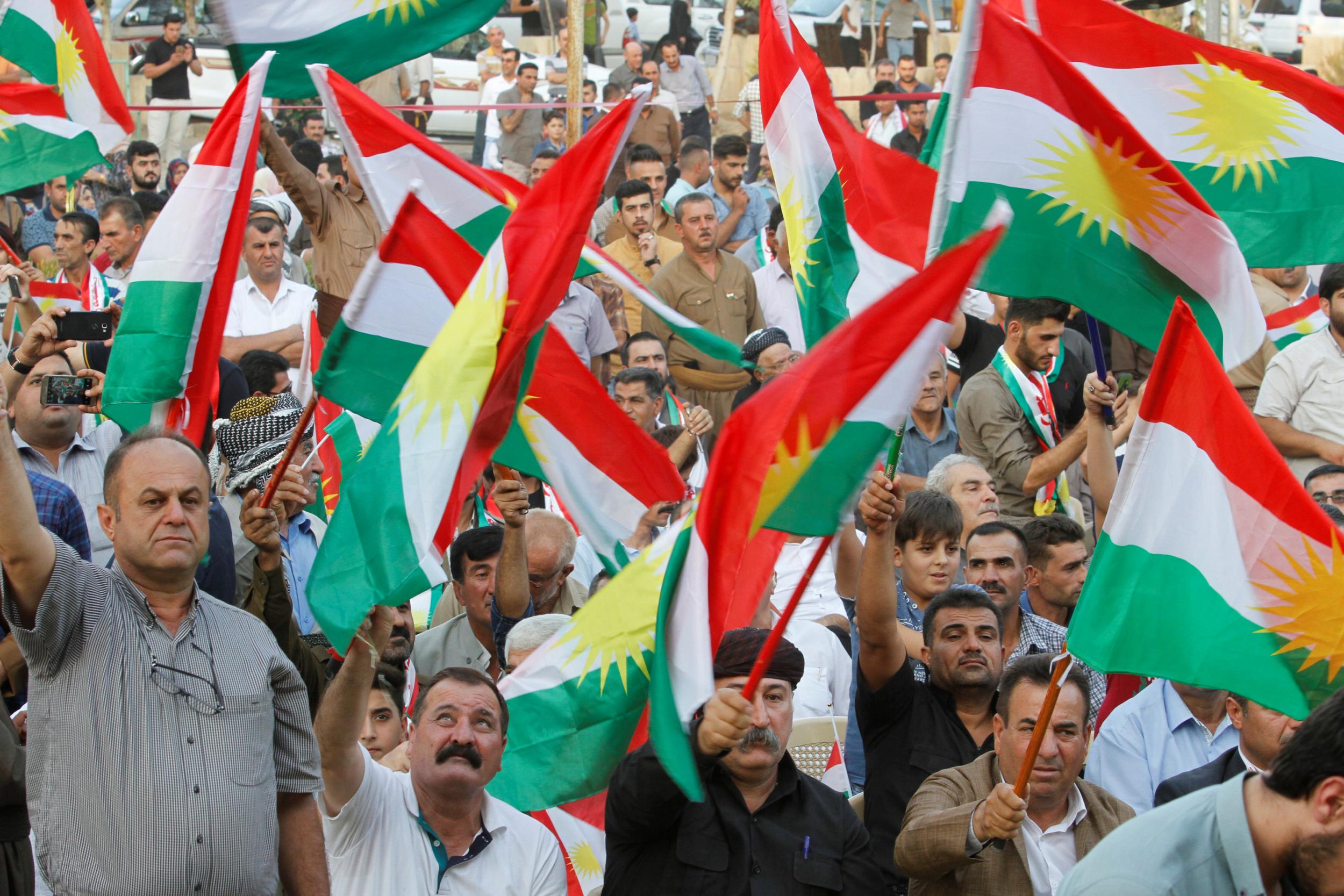This is why the West should support the Kurds in their quest for independence
The autonomous, quasi-sovereign Kurdish region north of Iraq is the most peaceful in the region. In a region where the West is only now starting to learn the bloody lessons of the past, maintaining a strong, liberal presence is paramount to stability

Your support helps us to tell the story
From reproductive rights to climate change to Big Tech, The Independent is on the ground when the story is developing. Whether it's investigating the financials of Elon Musk's pro-Trump PAC or producing our latest documentary, 'The A Word', which shines a light on the American women fighting for reproductive rights, we know how important it is to parse out the facts from the messaging.
At such a critical moment in US history, we need reporters on the ground. Your donation allows us to keep sending journalists to speak to both sides of the story.
The Independent is trusted by Americans across the entire political spectrum. And unlike many other quality news outlets, we choose not to lock Americans out of our reporting and analysis with paywalls. We believe quality journalism should be available to everyone, paid for by those who can afford it.
Your support makes all the difference.Independence movements rarely stay dormant for long.
Many grow violent – some are shot down time and again at the ballot box. We are told by nationalists that states have a right to self-determination. That much is true.
I wouldn’t for a moment suggest that we should be supporting independence movements at every turn, but Kurdistan is a special case. Not only are the Kurds the largest ethnic minority in the world without a state – but they’ve “earned it” beyond belief. Kurdish forces have been instrumental in the fight against Isis. For over 100 years, Kurds have been oppressed at every turn. The kicker, though, is that Kurdish statehood would not only be good for the Kurds – after decades of battling for it – but it would also be good for the West.
It’s a sad state of affairs, in many ways, that the question even needs to be considered. Why should the prosperous West be supporting the independence of an oppressed region in the Middle East? But to do so is only realistic. In a region where we’re finally learning to keep our hands to ourselves (for now) would it be foolish to start meddling? Would it be naïve for the US and Europe to pledge support to Iraqi Kurdistan when Baghdad, Iran, and Turkey are amongst those who oppose independence?
Absolutely not. Should the Kurds, as expected, opt for independence at the ballot box on the 25 September, we should instead be making it a foreign policy priority to ensure the result is upheld. Not least because Britain turned its back on a promise to support Kurdish statehood in return for support during World War One – and not least because Sykes-Picot and manufactured borders have been nothing but detrimental to peace in the Middle East.
Indeed, because Kurdistan would be a reliable ally in a hostile region, because Kurdistan would reduce the West’s reliance on Russia for its energy needs, and because we should prove we’re serious about extending human rights and liberal democracy to the rest of the world.
I’ll make no pretext that Israel is a beacon of stability – but it undeniably is blazing a trail for human rights and democracy in the Middle East. A democratic, pro-Western Kurdistan would do the same. Already – despite centuries of persecution and a serious uphill battle, women have equal rights (in many areas) to men – an absolute anomaly in the Middle East. The autonomous, quasi-sovereign Kurdish region north of Iraq is the most peaceful in the region. The absence of conflict has encouraged investment. In a region where the West is only now starting to learn the bloody lessons of the past, maintaining a strong, liberal presence is paramount to stability.
It would be naive, I suppose, in many ways, to not consider the oil question. The defence of Erbil is cited as the main reason Barack Obama came to the defence of Iraq. Obama noted, at the time, that “Kurdistan is functional in the way we would like to see… we think it’s important to make sure that space is protected.” The cynics amongst us immediately noted US economic interest – they’d be wrong not to. Kurdish independence, or even autonomy, would allow it to open up to world markets (dependant on what Turkey has to say.) This, for a West overly reliant on Russian energy exports, would be tremendous news. Not only does interdependence through trade help bring peace (case study: the European Union, for all its flaws,) but trading with the West would bring vast economic benefits to a newly independent Kurdistan.
The British government’s policy is to support an Iraqi confederation and an autonomous Iraqi Kurdistan region. This, were the government to step up its efforts, would be progress. But it is widely expected that the Kurds, in this historic vote – will tick for independence. It is tantamount for shared prosperity that the UK commits to upholding the vote. It’s time for the Kurds.
Matt Gillow is the founder and managing director of TalkPolitics
Join our commenting forum
Join thought-provoking conversations, follow other Independent readers and see their replies
Comments